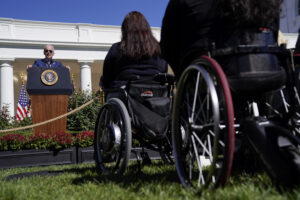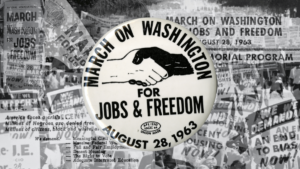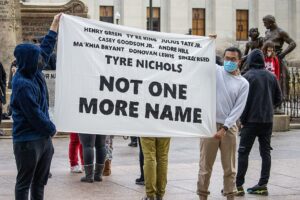Republicans Winning the War of Disenfranchisement
In the months after the U.S. Supreme Court gutted the Voting Rights Act under the argument that it is no longer necessary, regressive voting laws are taking root that threaten to snap the country back to the 1950s, disenfranchising minorities and women.
When Wendy Davis, reigning champion of the Texas legislative filibuster and Democratic gubernatorial candidate, went to vote this week in a local election, the poll tender noticed her name on the roll and her driver’s license differed slightly. And at first, she wasn’t allowed to vote (she eventually did after signing an affidavit).
Other women in Texas and elsewhere have suffered similar problems under the new tide of repressive voter ID laws, as have those lacking the cash to transport themselves to sometimes distant offices to get a voter ID card. Latinos, whose sometimes lengthy names can show up one way on the voter roll and another on their driver’s license, have also been affected.
In the months since the U.S. Supreme Court gutted the Voting Rights Act as no longer necessary, Republican-controlled states — which have already gerrymandered us into the most inept Congress in history — are falling over themselves to enact voter ID laws aimed at limiting the turnout among demographic groups that tend to vote Democratic. Some are making no secret of it.
Over at the National Journal, Norm Ornstein wraps up some of the egregious changes:
In North Carolina, a post-Shelby County law not only includes one of the most restrictive and punitive vote-ID laws anywhere but also restricts early voting, eliminates same-day voting registration, ends pre-registration for 16- and 17-year-olds, and bans many provisional ballots. Whatever flimsy voter-fraud excuse exists for requiring voter ID disappears when it comes to these other obstacles to voting.
In Texas, the law could require voters to travel as much as 250 miles to obtain an acceptable voter ID—and it allows a concealed-weapon permit, but not a student ID, as proof of identity for voting. Moreover, the law and the regulations to implement it, we are now learning, will create huge impediments for women who have married or divorced and have voter IDs and driver’s licenses that reflect maiden or married names that do not exactly match. It raises similar problems for Mexican-Americans who use combinations of mothers’ and fathers’ names.
In a recent election on constitutional issues, a female Texas District Court judge, Sandra Watts, who has voted for 49 years in the state, was challenged in the same courthouse where she presides; to overcome the challenge, she will have to jump through hoops and possibly pay for a copy of her marriage license, an effective poll tax on women.
The Justice Department is challenging both laws, but through a much more cumbersome and rarely successful provision of the Voting Rights Act that is still in force. It cannot prevent these laws and others implemented by state and local jurisdictions, many of which will take effect below the radar and will not be challenged because of the expense and difficulty of litigation.
As Ornstein points out, most Americans believe voting is a constitutional right, though there is nothing definitive in the Constitution giving citizens that power. He says it’s about time we fixed that with a constitutional amendment that guarantees the right to vote. That, he notes, would shift the argument from voter fraud and “an opening for severe restrictions on voting by many groups of Americans” to voting as a right, forcing those who would restrict to find new reasons.
A national debate on such an amendment, he argues, “would alert and educate voters to the twin realities: There is no right to vote in the Constitution, and many political actors are trying to take away what should be that right from many millions of Americans.”
—Posted by Scott Martelle.
Your support matters…Independent journalism is under threat and overshadowed by heavily funded mainstream media.
You can help level the playing field. Become a member.
Your tax-deductible contribution keeps us digging beneath the headlines to give you thought-provoking, investigative reporting and analysis that unearths what's really happening- without compromise.
Give today to support our courageous, independent journalists.






You need to be a supporter to comment.
There are currently no responses to this article.
Be the first to respond.